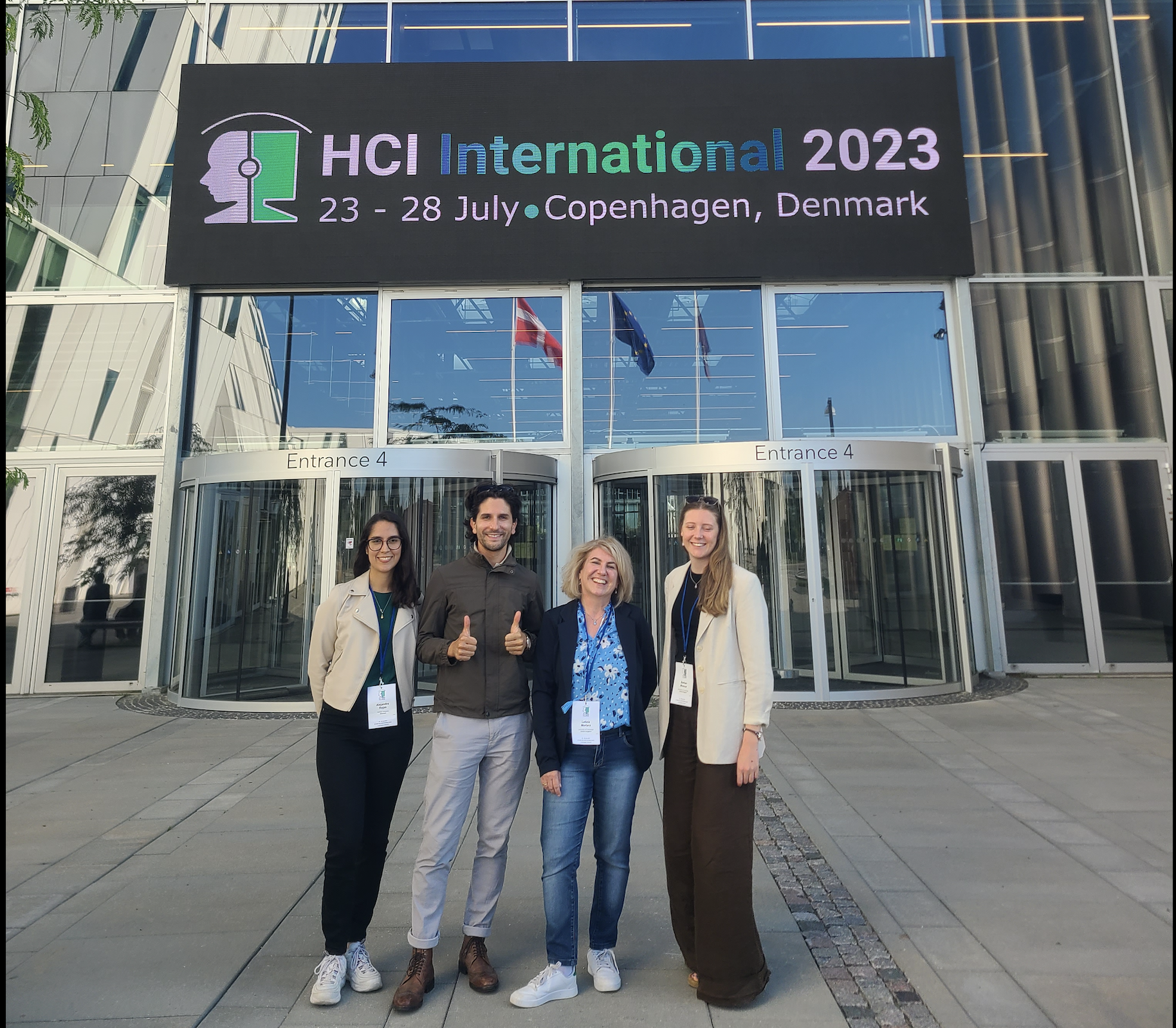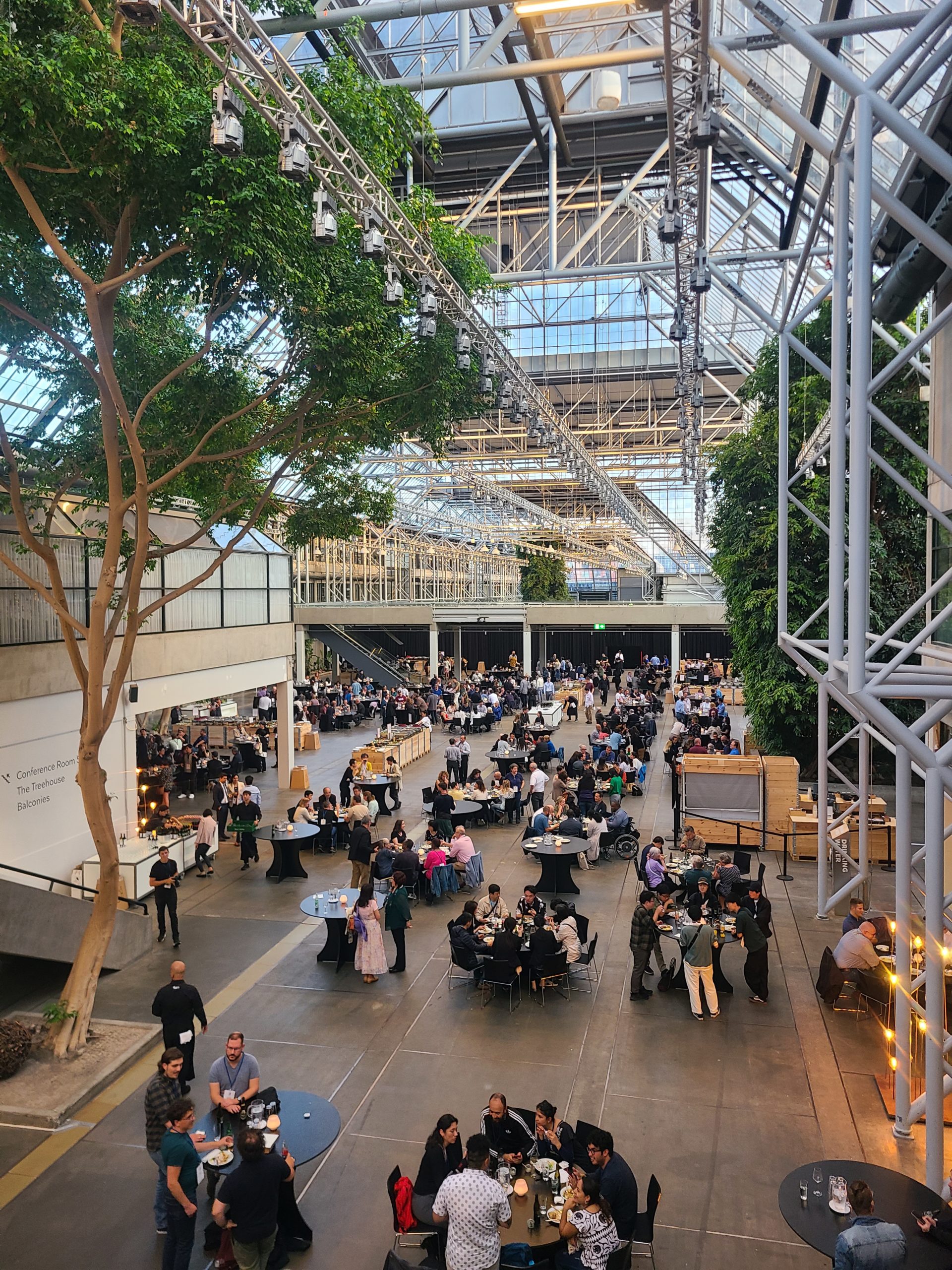Unveiling the Hidden Gems of the First Academic Conference
Fellow researchers, I recently took part to the first conference of my PhD journey. As a PhD student, joining a conference for the first time is a milestone rich of emotions and takeaways.
In this blog post, I will highlight eight key reasons why attending a conference is a game-changer for early-stage researchers like me, hopefully inspiring those who are undecided or haven’t attended one yet to take the leap and experience the invaluable benefits of such events. For more experienced researchers, this post will serve as a good reminder of the profound impact that conferences can have on their professional growth and networking endeavours.

The mixed group of colleagues attending the HCI 2023 conference in Copenhagen. Source: Nicola Felicini.
Networking Opportunities
The conference was teeming with brilliant minds from diverse fields and backgrounds. From more established academics to fellow PhD students, I found myself amidst an ocean of intellect and ideas. Engaging in discussions during coffee breaks and networking events allowed me to connect with like-minded individuals, and I even exchanged contact information with potential collaborators. These connections opened doors to potential research partnerships and sparked exciting possibilities for my future career.
Knowledge Exchange
Presenting my research at the conference was a bit of a nerve-wracking experience, but it turned out to be immensely rewarding. The audience’s constructive feedback during the Q&A session provided fresh perspectives and valuable insights into my work. Additionally, attending other presentations exposed me to various research approaches and methodologies, which I could integrate into my own study to enhance its quality and depth.
Staying Updated with the Latest Research
The conference boasted a diverse range of presentations, workshops, and keynote speeches, each showcasing cutting-edge research. As a PhD student, staying informed about the latest trends and advancements in my field is crucial, and the conference provided the perfect platform for this. The exposure to the latest studies and discoveries has renewed my passion for research and motivated me to push my work further.

Break and networking time at the HCI 2023 conference. Source: Nicola Felicini.
Skill Development
Attending conferences offers a valuable opportunity to develop essential skills that are vital for a researcher’s academic and professional growth. One of the key skills that can be honed through conference participation is effective communication. Presenting research to a diverse audience, engaging in discussions during Q&A sessions, and networking with fellow researchers all contribute to refining communication abilities. Articulating complex ideas concisely, adapting language to suit different audiences, and conveying research findings persuasively are just a few aspects of communication that can be improved. This skill is not only crucial for disseminating research effectively but also for building lasting connections and collaborations within the academic community and beyond.
Inspiration and Motivation
As I sat through thought-provoking presentations by seasoned researchers and passionate fellow students, I couldn’t help but feel inspired and motivated. Witnessing the relentless pursuit of knowledge and the tangible impact of research fueled my determination to make a meaningful contribution to my field.
Building Confidence
Presenting my research in front of a diverse audience was indeed intimidating, but the experience immensely bolstered my confidence. Defending my work during the Q&A session taught me to articulate my ideas more effectively and logically. This newfound confidence will undoubtedly serve me well during future academic events and job interviews.

Centre of Copenhagen, where the HCI 2023 conference took place. Source: Nick Karvounis on Unsplash.
Broadening Perspectives
Attending a multidisciplinary conference exposed me to a wide range of research topics and methodologies beyond my primary area of study. Engaging with researchers from different backgrounds expanded my horizons, challenging me to think more creatively and consider novel approaches to my research questions.
Strengthening Academic Identity
As a PhD student, it’s crucial to feel like a part of the academic community. Presenting my research at the conference was a significant step in establishing my academic identity. The positive feedback and recognition from peers and established researchers helped solidify my presence within the academic realm.
In conclusion, attending to my first academic conference was an unforgettable experience that has left an indelible mark on my academic journey. The networking opportunities, knowledge exchange, and exposure to the latest research have undoubtedly enhanced my research skills and broadened my perspective. Furthermore, the inspiration, motivation, and strengthened academic identity have instilled in me the belief that my contribution to the field is valuable and vital.
To all my fellow PhD students out there, I wholeheartedly encourage you to take advantage of such opportunities whenever they arise. Embrace the chance to connect, learn, and grow within the academic community. The benefits are immeasurable, and you’ll find yourself returning from the conference with a renewed sense of purpose and enthusiasm for your research endeavours. Happy researching!


Add a Comment